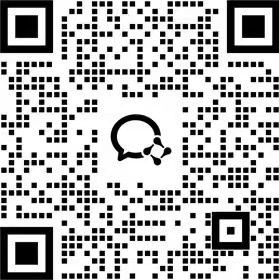
剑桥雅思15阅读Test1Passage3原文翻译
剑桥雅思15阅读Test1Passage3本文论述了人类的探险本性以及对新知识的追求和分享的重要性。
探险作为人类共同的特质,促使我们的物种成功地在全球范围内扩散和生存。然而,随着技术和科学的进步,探险的定义也发生了变化。过去认为探险家是一种特殊的品种,但现在我们每个人都具备探索未知的好奇心,无论是在艺术、科学还是其他领域。虽然我们已经了解了地球上许多物种和地理环境,但仍有大量未知领域需要探索。因此,探险不仅仅是到达未知地方,而是通过新的视角和解读,为人们带来新见解的过程。
第1段 We are all explorers. Our desire to discover, and then share that new-found knowledge, is part of what makes us human 一 indeed, this has played an important part in our success as a species. Long before the first caveman slumped down beside the fire and grunted news that there were plenty of wildebeest over yonder, our ancestors had learnt the value of sending out scouts to investigate the unknown. This questing nature of ours undoubtedly helped our species spread around the globe, just as it nowadays no doubt helps the last nomadic Penan maintain their existence in the depleted forests of Borneo, and a visitor negotiate the subways of New York.
第2段 Over the years, we’ve come to think of explorers as a peculiar breed – different from the rest of us, different from those of us who are merely ‘well travelled’, even; and perhaps there is a type of person more suited to seeking out the new, a type of caveman more inclined to risk venturing out. That, however, doesn’t take away from the fact that we all have this enquiring instinct, even today; and that in all sorts of professions 一 whether artist, marine biologist or astronomer 一 borders of the unknown are being tested each day.
第3段 Thomas Hardy set some of his novels in Egdon Heath, a fictional area of uncultivated land, and used the landscape to suggest the desires and fears of his characters. He is delving into matters we all recognise because they are common to humanity. This is surely an act of exploration, and into a world as remote as the author chooses. Explorer and travel writer Peter Fleming talks of the moment when the explorer returns to the existence he has left behind with his loved ones. The traveller ‘who has for weeks or months seen himself only as a puny and irrelevant alien crawling laboriously over a country in which he has no roots and no background, suddenly encounters his other self, a relatively solid figure, with a place in the minds of certain people’.
第4段 In this book about the exploration of the earth’s surface, I have confined myself to those whose travels were real and who also aimed at more than personal discovery. But that still left me with another problem: the word ‘explorer’ has become associated with a past era. We think back to a golden age, as if exploration peaked somehow in the 19th century 一 as if the process of discovery is now on the decline, though the truth is that we have named only one and a half million of this planet’s species, and there may be more than 10 million 一 and that’s not including bacteria. We have studied only 5 per cent of the species we know. We have scarcely mapped the ocean floors, and know even less about ourselves; we fully understand the workings of only 10 per cent of our brains.
第5段 Here is how some of today’s ‘explorers’ define the word. Ran Fiennes, dubbed the ‘greatest living explorer’, said, ‘An explorer is someone who has done something that no human has done before – and also done something scientifically useful.’ Chris Bonington, a leading mountaineer, felt exploration was to be found in the act of physically touching the unknown: ‘You have to have gone somewhere new.’ Then Robin Hanbury-Tenison, a campaigner on behalf of remote so-called ‘tribal’ peoples, said, ‘A traveller simply records information about some far-off world, and reports back; but an explorer changes the world.’ Wilfred Thesiger, who crossed Arabia’s Empty Quarter in 1946, and belongs to an era of unmechanised travel now lost to the rest of us, told me, ‘If I’d gone across by camel when I could have gone by car, it would have been a stunt.’ To him, exploration meant bringing back information from a remote place regardless of any great self-discovery.
第6段 Each definition is slightly different – and tends to reflect the field of endeavour of each pioneer. It was the same whoever I asked: the prominent historian would say exploration was a thing of the past, the cutting-edge scientist would say it was of the present. And so on. They each set their own particular criteria; the common factor in their approach being that they all had, unlike many of us who simply enjoy travel or discovering new things, both a very definite objective from the outset and also a desire to record their findings.
第7段 I’d best declare my own bias. As a writer, I’m interested in the exploration of ideas. I’ve done a great many expeditions and each one was unique. I’ve lived for months alone with isolated groups of people all around the world, even two ‘uncontacted tribes’. But none of these things is of the slightest interest to anyone unless, through my books, I’ve found a new slant, explored a new idea. Why? Because the world has moved on. The time has long passed for the great continental voyages – another walk to the poles, another crossing of the Empty Quarter. We know how the land surface of our planet lies; exploration of it is now down to the details 一 the habits of microbes, say, or the grazing behaviour of buffalo. Aside from the deep sea and deep underground, it’s the era of specialists. However, this is to disregard the role the human mind has in conveying remote places; and this is what interests me: how a fresh interpretation, even of a well-travelled route, can give its readers new insights.
|
我们都是探险。我们渴望探索,并将新发现的知识分享出来,这是构成我们人类的一部分,事实上,这在我们作为一个物种的成功中起到了重要作用。早在第一个穴居人靠在火边,嘟哝着传达有大量牛羚在那边的消息之前,我们的祖先就已经学会了派出侦察兵去探索未知。我们这种探索的本性无疑帮助我们的物种在全球范围内扩散,就像如今毫无疑问地帮助最后的游牧佩南人在婆罗洲枯竭的森林中维持他们的存在,也帮助游客在纽约的地铁中导航。
|
2023年最新雅思模拟真题推荐:
| 2023雅思口语模考真题最新 |
| 2023雅思写作模考真题最新 |
| 2023雅思阅读模考真题最新 |
| 2023雅思听力模考真题最新 |
| 雅思口语模考 |
| 雅思写作批改 |
| 雅思真题资料题库PDF下载 |







